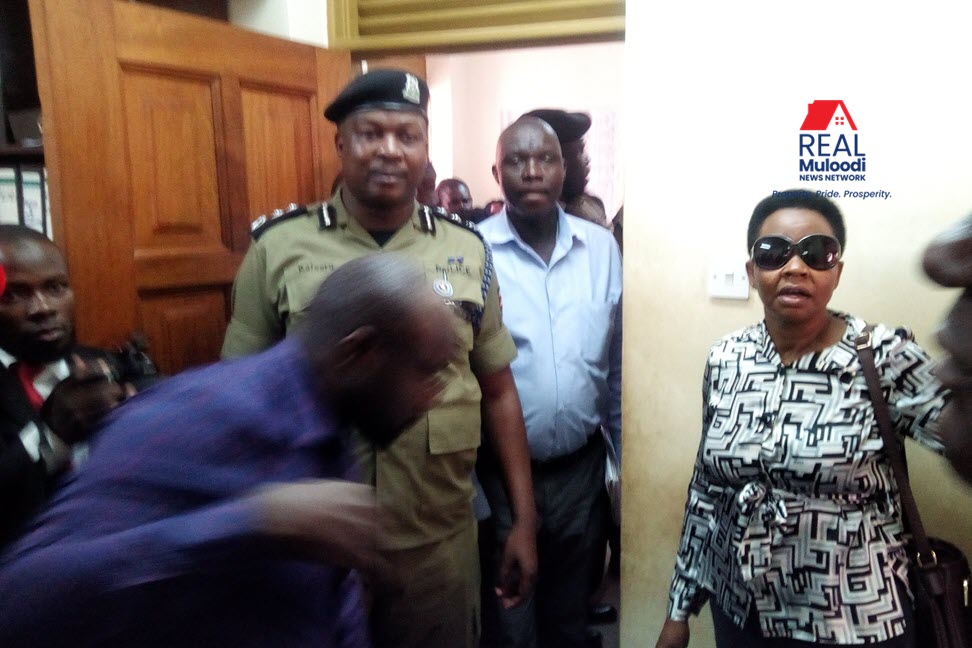UGANDA, Kampala | Real Muloodi News | The government of Uganda will banish brokers that carry out transactions in land registry offices across the country.
The government has introduced a computerised land management system, called the Uganda National Land Information System (UGNLIS), to eliminate double titling, forgeries and inefficiencies in the land registry offices countrywide.
Mr Sam Mayanja, the State Minister of Lands, revealed this development two weeks ago during his visit to Kampala’s National Land Information Center. The Minister was with a team from the Uganda Law Society, led by the Chief Executive Officer, Mr Moses Okwalinga.
“Land registries are mainly used by lawyers and [each] day, about 20 lawyers can use a land registry office across the country. But you find brokers outside every land registry office doing a transaction and this leads to corruption. We are going to stop brokers from entering land registries,” Mr Mayanja said.
Following a public outcry in 2018 over alleged connivance between officials and brokers to defraud people in land related transactions, security operatives from the State House Anti-Corruption Unit led by Col Edith Nakalema raided the lands registry offices in Wakiso District. They rounded up surveyors, land officials, clients and brokers. The team seized all electronic gadgets from land officers as part of the investigations.
Since then, most of the land files have been moved from the manual form into the computerised system. The national land information centre, supported by UGNLIS, now aids in the quick handling of vast volumes of land searches, title transfers and documentation.
The UGNLIS, instituted in 2013 at the behest of President Museveni, digitises land titling, registration and mapping, and is currently operational in 22 zonal offices across the country.
According to Mr Mayanja, although the country is already reaping its rewards, UGNLIS is still a work in progress.
“We have redistributed our presence countrywide with 22 operating ministry zonal offices, each one of them being a full representative of the ministry headquarters here in Kampala,” Mr Mayanja said.
He added that this will extend services closer to the people.
According to Mr Grace Kagoro, the Project Coordinator of Competitiveness and Enterprise Development Project Land Component, the system has contributed about US$200m to the national treasury.
“We have been able to twist this into a money-making venture for the government. Although the revenues go down during election time because people go into other things, but as soon as elections are complete people continue doing land transactions,” Mr Kagoro said.
Mr Mayanja also echoed a similar analysis: “The UGNLIS has enabled us to block all seepages of revenue to government accruing from land transaction fees. By ensuring that it is mandatory to provide evidence that the payable fees have been paid and this payment verified by URA because our system and that of URA talk to each other.”
Mr Kagoro further said that the system has helped them eliminate the possibility of non-Ugandans buying land since they integrated the system with that of the National Identification & Registration Authority (NIRA).
“We used to have such tendencies where people could turn up here with forged National Identity Cards, but now we just ask NIRA people to verify and that is sorted,” he said.
The computerised land management system has also reduced the cost of doing business because of the quick retrieval of information and speedy transactions. Digitalisation has also reduced the turnaround time for land titles from 52 days to 10 days.
READ MORE LIKE THIS
Makerere University Researchers Digitise over 10,000 Land Records



